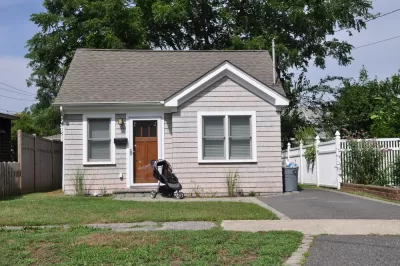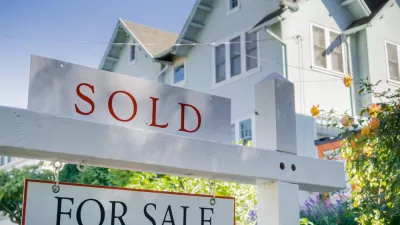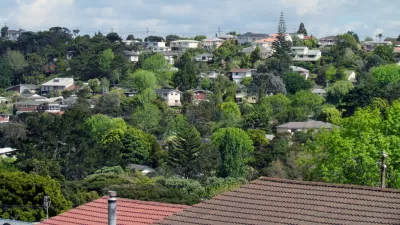Over 13 million potential first-time homebuyers were priced out this year, putting homeownership out of reach for low-income households in most of the largest U.S. cities.

"As home prices continue to surge, low-income households already on the margins of home affordability are on the verge of being completely priced out of homeownership in most major US metro areas." Raheem Hanifa "examined what area median income level was needed to afford a modest-priced home in each of the top 100 metro areas in June of 2021 compared to June of 2020, and then how many renters aged 25-55 were in that group in each time period" for an estimate of "how many likely first-time homebuyers were priced out of homeownership."
Hanifa found that "[b]y June 2021, extremely-and -very low-income households with under 30 percent AMI, and between 30-50 percent AMI respectively, could not afford the median-priced home in any of the 100 largest US metro areas, and in only 20 metros were homes affordable for low-income households with incomes between 50-80 percent of AMI." This translates to 13.4 million potential first-time homebuyers who could not afford a median-priced home. "While households across all AMI levels are impacted by increasing home prices, low-income households with incomes between 50-80 percent of AMI are most at risk of being priced out of affordable homeownership."
"Further compounding these challenges is that even when low-to-moderate income buyers can afford to purchase a home, intense homebuying competition has locked many who rely on FHA and VA loans out of homeownership." The Biden administration, Hanifa writes, should support "policies that build more affordable housing and targeted downpayment assistance to Black households, who already have large homeownership gaps," and "consider employing the Equal Credit Opportunity Act (ECOA) and the exemptions provided through its Special Purpose Credit Program (SPCP), which allows lenders to favorably consider prohibited factors such as race or ethnicity in connection with a special purpose that may include initiatives for 'low-income borrowers of color.'"
FULL STORY: THIS YEAR, HALF AS MANY METRO AREAS ARE AFFORDABLE TO LOW-INCOME HOMEBUYERS AS LAST YEAR

Maui's Vacation Rental Debate Turns Ugly
Verbal attacks, misinformation campaigns and fistfights plague a high-stakes debate to convert thousands of vacation rentals into long-term housing.

Planetizen Federal Action Tracker
A weekly monitor of how Trump’s orders and actions are impacting planners and planning in America.

In Urban Planning, AI Prompting Could be the New Design Thinking
Creativity has long been key to great urban design. What if we see AI as our new creative partner?

King County Supportive Housing Program Offers Hope for Unhoused Residents
The county is taking a ‘Housing First’ approach that prioritizes getting people into housing, then offering wraparound supportive services.

Researchers Use AI to Get Clearer Picture of US Housing
Analysts are using artificial intelligence to supercharge their research by allowing them to comb through data faster. Though these AI tools can be error prone, they save time and housing researchers are optimistic about the future.

Making Shared Micromobility More Inclusive
Cities and shared mobility system operators can do more to include people with disabilities in planning and operations, per a new report.
Urban Design for Planners 1: Software Tools
This six-course series explores essential urban design concepts using open source software and equips planners with the tools they need to participate fully in the urban design process.
Planning for Universal Design
Learn the tools for implementing Universal Design in planning regulations.
planning NEXT
Appalachian Highlands Housing Partners
Mpact (founded as Rail~Volution)
City of Camden Redevelopment Agency
City of Astoria
City of Portland
City of Laramie





























